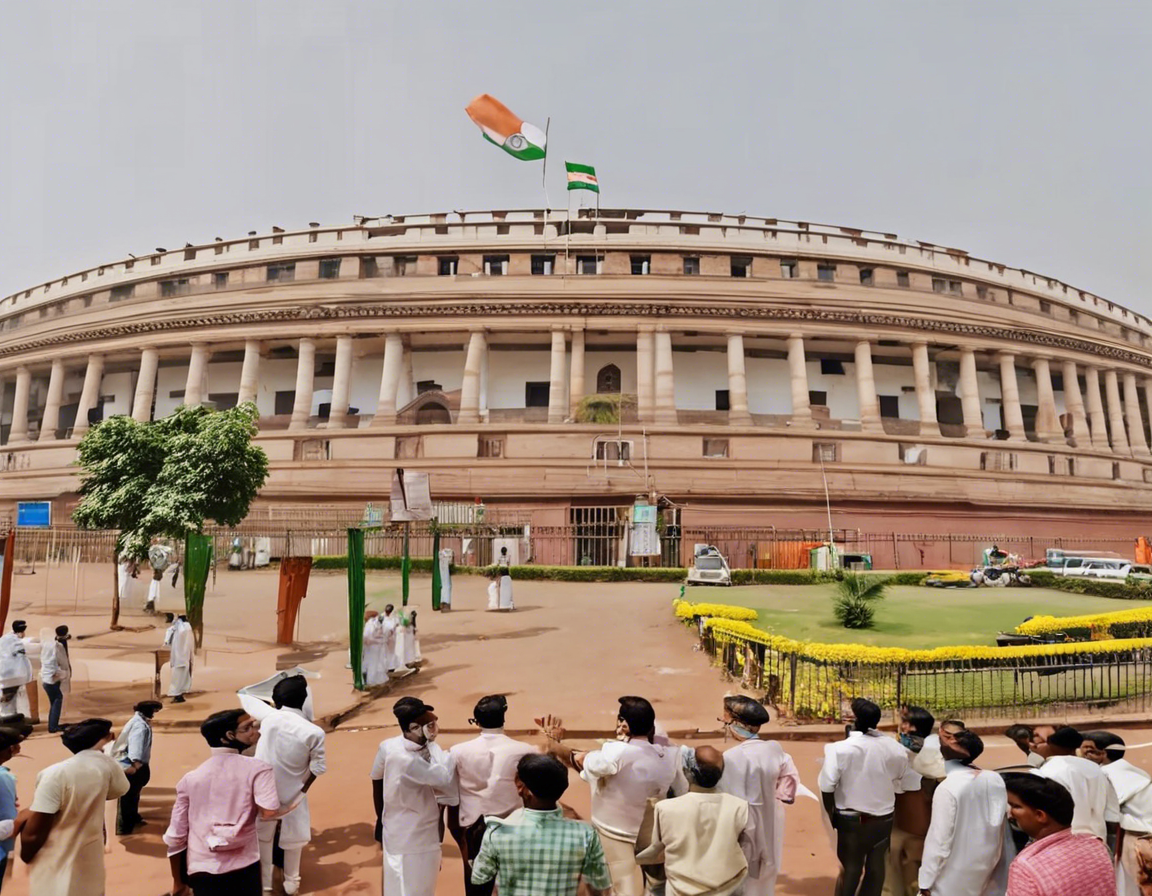India, known for its vibrant democracy, is gearing up for Phase 5 of the Lok Sabha Elections in 2024. With each phase, the excitement, anticipation, and engagement among the citizens reach new heights. Phase 5, like the previous ones, holds significant importance in shaping the political landscape of the country. Let’s delve into the updates, key highlights, and what to expect in Phase 5 of the Lok Sabha Elections 2024.
Importance of Phase 5
Phase 5 of the Lok Sabha Elections is crucial as it covers a substantial number of constituencies across multiple states. The results from this phase can often be indicative of the overall trend and potential outcomes of the elections. It is a stage where both major political parties and regional players aim to make their mark and secure a significant number of seats.
Key States and Constituencies
In Phase 5, states like Uttar Pradesh, West Bengal, Bihar, Rajasthan, Punjab, Jharkhand, and Madhya Pradesh will witness polling in various constituencies. These states collectively hold a considerable number of Lok Sabha seats, making Phase 5 a battleground for political parties vying for power at the center.
Uttar Pradesh
- In Uttar Pradesh, constituencies like Lucknow, Rae Bareli, and Barabanki will be in focus during Phase 5.
- The state plays a pivotal role in determining the overall electoral outcome due to its large number of Lok Sabha seats.
West Bengal
- West Bengal, known for its fiercely contested elections, will see constituencies like Kolkata Uttar, Diamond Harbour, and Jadavpur going to polls in this phase.
- The state has been a hotbed of political activity with the ruling party and opposition engaging in a high-stakes battle.
Bihar
- Constituencies like Patna Sahib, Pataliputra, and Banka will be key battlegrounds in Bihar during Phase 5.
- Bihar’s political landscape is diverse, with regional parties often playing a crucial role in shaping the electoral outcomes.
Voter Turnout and COVID-19 Protocols
Voter turnout is expected to be high in Phase 5, with citizens coming out in large numbers to exercise their democratic right. However, amidst the ongoing COVID-19 pandemic, strict protocols and safety measures will be in place at polling booths to ensure the safety of voters and election officials. Social distancing, mandatory mask-wearing, sanitization, and temperature checks will be enforced to prevent the spread of the virus.
Election Campaign Highlights
The election campaign in Phase 5 will witness intense campaigning by political parties, leaders, and candidates. Rallies, roadshows, public meetings, and digital campaigns will be prominent features as parties strive to connect with voters and convey their vision and promises. Issues such as unemployment, development, healthcare, and national security are likely to dominate the narrative during the campaign trail.
Security Arrangements
Security arrangements will be stringent during Phase 5 to ensure smooth and peaceful polling. Deployment of security personnel, surveillance, and monitoring will be heightened to prevent any untoward incidents and maintain law and order. Voters are encouraged to participate in the electoral process without fear and intimidation.
Counting and Results
After the conclusion of Phase 5, all eyes will be on the counting of votes and the subsequent results. The Election Commission will oversee the counting process, ensuring transparency and accuracy in the declaration of results. The outcome of Phase 5 will have a significant impact on the overall political landscape and the formation of the new government at the center.
Frequently Asked Questions (FAQs)
- What are the dates for Phase 5 of the Lok Sabha Elections 2024?
-
The dates for Phase 5 will be announced by the Election Commission closer to the polling day.
-
How many constituencies are there in Phase 5 of the Lok Sabha Elections?
-
The number of constituencies can vary based on the states participating, but it typically covers multiple constituencies across different states.
-
What are the key issues in Phase 5 of the Lok Sabha Elections?
-
Major issues in Phase 5 may include unemployment, development, healthcare, and national security, among others.
-
Are COVID-19 protocols mandatory during Phase 5 of the elections?
-
Yes, strict COVID-19 protocols, including social distancing, mask-wearing, and sanitization, are mandatory at polling booths during Phase 5.
-
Which states play a crucial role in Phase 5 of the Lok Sabha Elections?
-
States like Uttar Pradesh, West Bengal, Bihar, Rajasthan, Punjab, Jharkhand, and Madhya Pradesh are significant players in Phase 5.
-
How is the voter turnout expected to be in Phase 5?
-
Voter turnout is expected to be high in Phase 5 as citizens exercise their democratic right to vote.
-
What are the security arrangements in place for Phase 5 of the Lok Sabha Elections?
-
Stringent security arrangements, including the deployment of security personnel and surveillance, will be in place to ensure peaceful polling.
-
When will the results of Phase 5 be announced?
-
The results of Phase 5 will be declared after the completion of the counting process, usually a few days after polling.
-
Are there any specific constituencies to watch out for in Phase 5?
-
Constituencies like Lucknow, Kolkata Uttar, Patna Sahib, and others will be key battlegrounds to watch out for in Phase 5.
-
How do political parties engage with voters during the election campaign in Phase 5?
- Political parties engage with voters through rallies, roadshows, public meetings, digital campaigns, and direct interactions to convey their vision and promises.
Phase 5 of the Lok Sabha Elections in 2024 promises to be a significant chapter in India’s democratic journey. As citizens participate in the electoral process, the outcomes of Phase 5 will shape the future trajectory of governance and politics in the country. It is a time for active engagement, informed decision-making, and collective participation in the democratic process.


